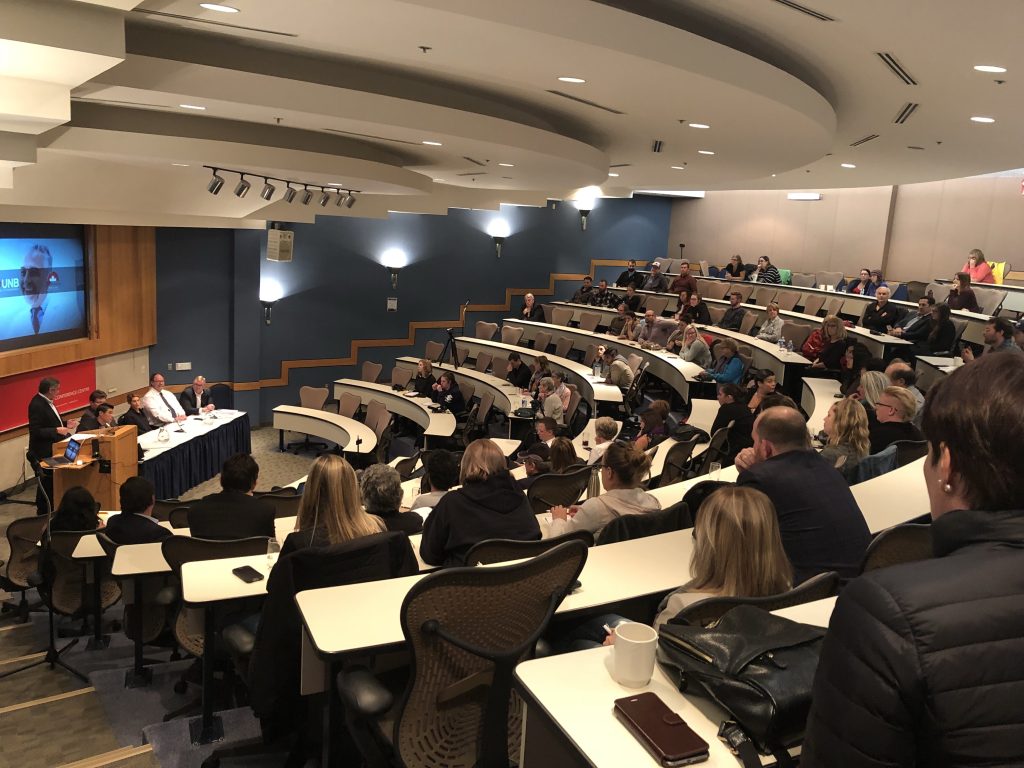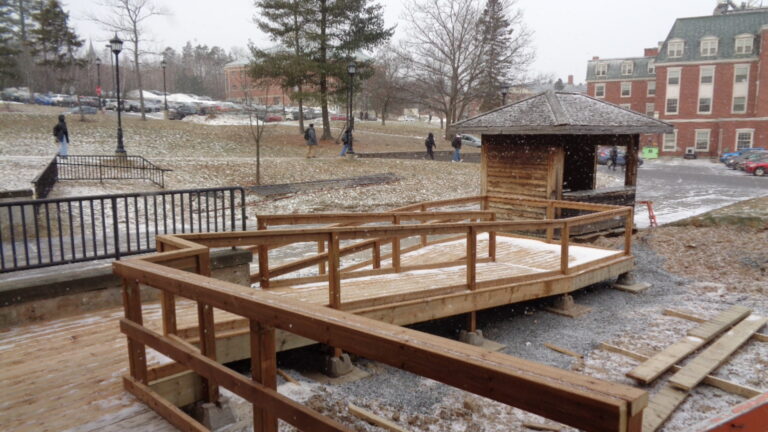Doctors and medical researchers reminded audience members at a panel at the University of New Brunswick that cannabis products for medical and recreational use are chemically different.
UNB and the Canada House Wellness Group, a medical cannabis company, co-hosted “A Conversation on Cannabis” held on Oct. 15 at the Wu Conference Centre.
Six panelists from different backgrounds focused on the impact of legalization on research and supply of medical as well as recreational cannabis.
Alex Croon, executive vice-president of Canada House, called legalization the “golden age of medical cannabis,” noting that it will allow for the improvement and expansion of the research sector. His company was created five years ago by veterans suffering from post-traumatic stress disorder and has since grown to include ten clinics around Canada.
NB Research and Productivity Council (RPC) executive director Eric Cook said the media has falsely interpreted legalization by painting it primarily as an economic issue.
“Producers are diligently testing their product to ensure that they have the right quality,” Cook said. “Extensive testing is being done to determine what is in the product as they can contain potential contaminants like pesticides and metals.”
Differences for medical products
Medical cannabis can only be purchased using prescriptions provided by physicians while recreational cannabis is available at retail stores to anyone over the age of 19.
Experts say that some people using cannabis recreationally are seeking the euphoric feeling while others use it to alleviate painful symptoms; the similarity between the two uses is that people are looking for a recurring feeling.
Michael Prouse, the quality control manager at Abba Medix, a medical marijuana company, said research is indicating that tetrahydrocannabinol or THC will be used for recreational purposes and cannabidiol or CBD will be used for medical use.
THC is the psychoactive component of the cannabis plant which causes users to become “high,” while CBD is another chemical compound that is less psychoactive.

Nicole Ferris, a cannabinoid therapy expert, said she has been using cannabis to help clients with post-traumatic stress disorder. Ferris said she spent 22 years trying to find recreational strains that would help, and six years ago decided to shift entirely to medical cannabis.
She said she has used cannabis to treat personal health issues.
Legalization to drive expanded medical research
Stephanus Van Vuuren, a Canada House Wellness Group family physician, said he was initially skeptical about medical cannabis due to limited available research.
Family physicians who graduated before 2006 did not learn about the cannabinoid system in medical school, he said.
Many patients informed Van Vuuren that they were cannabis consumers as other medications had failed to help them. Through his experience, he said he found out that patients who do not like the psychoactive effects of THC use CBD as medicine instead.
After witnessing successful cases including veterans who said they felt that they got their life back by using medical cannabis, Van Vuuren now recommends medical cannabis as a second or third line of drug. Due to liability and inadequate information, he is not yet convinced to have medical cannabis as a first-line drug.
“There was no hard data about the strength that worked better for different health conditions. Now the clinics are collecting information by following the patients to be able to diagnose better,” Van Vuuren said.
Prouse said that legalization has also created vast production opportunities.
“There are over 113 cannabinoids with over 1000 strengths […] and producers are dealing with a plethora of variables,” Prouse said.
Some variables to growing cannabis include temperature, soil content, water content, exposure to air and other chemicals as well as the duration of exposure due to the highly sensitive chemical structure of cannabis.
Research is being performed on different types of cannabis as well as hybrids. RPC has also undertaken analysis of the combustion component of cannabis.
Cannabis-focused research at UNB
David Magee, vice-president of research at UNB, said that the university is taking advantage by trying to develop areas of potential growth, including recreational, medicinal and cannabis oil products.
There is a potential to explore the science and humanities side of cannabis at UNB. Magee said there are currently a lot of unknowns concerning social impact and challenges. Research in cyber security will be a growing aspect of this industry to protect patient information and secure transportation as well as growth of cannabis.
There is no current project in progress to include study of cannabinoids as part of a structured course at UNB.




